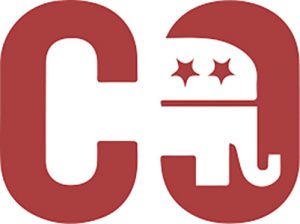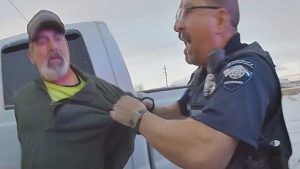by Mark Craddock
COLORADO — Beyond the usual list of local, state, and national candidates seeking office, this year’s ballot is chock-a-block with a plethora of propositions, a bevy of ballot issues, a cornucopia of constitutional amendments. It’s an overwhelming exercise in grassroots democracy that can leave even the most ardent politics junkie’s head spinning.
To help ease the anxiety of exercising one’s civic prerogative, here’s a brief rundown of the ballot issues Colorado voters will face, as compiled by the Secretary of State:
Amendment A — Prohibit slavery and involuntary servitude
Another house-cleaning measure proposed by the state legislature, this amendment would change section 26 of the state constitution to unambiguously prohibit slavery or involuntary servitude, by removing the line “…except as a punishment for crime; whereof the party shall have been duly convicted.”
Proponents say “Removing the language explicitly prohibits slavery and involuntary servitude in all circumstances and reflects Colorado’s commitment to equality and just treatment.”
Opponents, however, contend that “removing the language in the constitution could have the unintended consequence of raising legal uncertainty around current offender work requirements until legal precedent is established.”
Amendment V — 21 year olds can serve in state house
Constitutional Amendment V would lower the age at which a person can serve in the Colorado General Assembly from 25 years to 21 years.
According to Secretary of State documents, proponents argue that Excluding 21- to 24-year-olds from seeking election to the state legislature is an unnecessary restriction. A 21-year-old is considered an adult under the law. Voters can judge whether a candidate possesses the maturity, ability, and competence to hold political office. In addition, allowing younger candidates to run for office encourages the civic engagement of young people.
Opponents say the current age requirement strikes an appropriate balance between youth and experience. Younger candidates may lack the maturity and expertise to be effective legislators. The policy decisions and political pressures that legislators face are best handled by people with more life experience. Lack of experience could hinder a young legislator’s ability to represent his or her constituents effectively.
Amendment W — Judicial retention language
This constitutional amendment would change the way judicial retention questions appear on ballots. It is primarily a house-cleaning measure put on the ballot by the state legislature to simplify the way judges appear on state ballots.
Currently, the “judicial retention question” — “Shall Justice (Judge) of the Supreme (or other) Court be retained in office?” — must be listed for each judge on the ballot. Under Amendment W, the judges would be grouped together based on court type — Supreme Court, Appellate Court and District Court. Neither proponents or opponents submitted arguments to the Secretary of State.
Amendment X — Definition of industrial hemp
In 2012, Amendment 64, which legalized the recreational use of marijuana, also added a definition of “industrial hemp” — basically a cannabis plant with no more than 0.3 percent THC.
Amendment X would change the definition of industrial hemp from one written into the state constitution to a definition set by state statute.
Proponents claim the move will allow the state to adjust the definition of industrial hemp (especially the THC limits) more quickly, to respond to market and regulatory demands of this growing industry. “Colorado is the leading producer of industrial hemp in the country,” proponents write. “Striking this definition (from the constitution) will allow Colorado’s hemp industry to remain competitive with other states as the regulatory landscape evolves for this crop.”
But opponents are suspicious. Under current federal law, industrial hemp is still classified as a controlled substance, though Congress currently has legislation pending regarding it. Opponents argue that enshrining the definition in the state constitution protects it from shifting political and regulatory whims.
“Colorado voters added the definition of industrial hemp to the Colorado Constitution through the initiative process,” opponents write. “The measure may deviate from the voter’s original intent.”
Amendments Y and Z — Redistricting maps
These two amendments are an attempt to prevent “gerrymandering” of state legislative and Congressional districts by removing the one-a-decade process from the state legislature and placing it in the hands of an independent commission. Amendment Y applies to Congressional districts and Amendment Z applies to state legislative districts.
As it currently stands, the U.S. Census Bureau counts the population every decade, after which the congressional reapportionment process occurs, by which each state is granted seats in the House of Representatives based on its share of the population. The state legislature then divides the state into congressional districts.
This process is inherently political, with the party in power often attempting to redraw district lines more favorable to their party — a process called “gerrymandering.”
If the legislature can’t agree on a new map by the end of the legislative session, it falls on the state courts to intervene. In Colorado, this process has led to court challenges the last four times redistricting has occurred.
A similar process, with similar faults, occurs with state legislative district maps.
Amendment Y creates a new 12-member Independent Congressional Redistricting Commission. Four members come from the state’s largest political party (currently Democrat), four from the second-largest party (currently Republican) and four not affiliated with any political party.
They are selected from a statewide pool of applicants by three recently retired judges from the state Supreme Court or Appellate Court, appointed by the Chief Justice of the Supreme Court.
An applicant must be registered to vote and have voted in the previous two general elections in Colorado, and have been either affiliated with the same party or unaffiliated with any party for the last five consecutive years. An applicant may not be appointed to the commission if he or she has been a candidate for federal office within the last five years, or within the last three years been: a professional registered lobbyist; an elected public official; an elected political party official above the precinct level; or paid by a member of or candidate for Congress.
Amendment Z creates a similar Independent Legislative Redistricting Commission.
Amendment 73 — Funding for Public Schools
This amendment would increase funding for public preschool through 12th grade by increasing the income tax on citizens with income over $150,000, increasing the corporate income tax rate, and setting new assessment rates for property taxes levied by school districts. Analysis predicts the amendment will generate new revenue of $1.6 billion in its first year.
Proponents say the state needs a sustainable source of revenue to adequately and equitably fund public education. They say Colorado cut P-12 public education funding as a result of the Great Recession, and funding levels have not recovered relative to what the formula would otherwise require, even though Colorado has one of the healthiest economies in the nation. They say the measure provides property tax relief for business property owners, farmers, and ranchers who have paid an increasingly higher proportion of property taxes compared to residential property owners.
Opponents say the measure imposes a tax increase without any guarantee of increased academic achievement. They say a focus on educational reform and opportunity rather than new revenue is more likely to improve student outcomes, and increasing income tax could negatively impact the state’s economy.
Both seem to agree that this amendment would circumvent provisions of TABOR, which limits state tax increases. They differ on whether that is good or bad.
“Constitutional constraints have suppressed local property tax revenue in many areas and led to greater pressure on the state general operating budget to meet required education funding levels,” proponents argue. “Stabilizing the local share of required school formula funding and creating a dedicated source of state revenue for education provide additional flexibility for the state to use more of its general operating budget on other core programs, such as transportation, public safety, and health care.”
“The additional revenue generated by the measure is exempt from the state’s constitutional spending limit,” opponents argue, “thereby removing an important protection for taxpayers.”
Amendment 74 — “Fair market value” compensation
This amendment would allow property owners to sue governmental or regulatory agencies if their decisions reduce the market value of their property.
Current law lists three ways in which a governmental entity can take or damage private property and must therefore compensate property owners — eminent domain, in which land is taken for public benefit; when a government causes damage to private property, for instance building a road which limits access to a property; and “regulatory taking,” when a government enacts a law or regulation that deprives a property owner of the use or value of the property.
Amendment 74 would expand the definition of “regulatory taking” to include actions which result in “any decrease in fair market value” as opposed to the current standard of “an almost total loss in value or use.”
Proponents say it is only fair that property owners should be compensated for any harm they sustain because of government action.
Opponents say the amendment is an over-reach which could lead to laissez faire land use — including exercising oil, gas or mineral rights — with any community push-back or government oversight potentially subject to a flood of lawsuits.
They say the bulk of the money for the amendment’s advocacy group, Colorado Shared Heritage, comes from Protect Colorado, and oil- and gas-backed committee that is also pouring millions of dollars into defeating Proposition 112, which would enact stricter setback requirements on new wells.
Amendment 75 — Campaign contributions
This amendment would increase campaign contribution limits for political candidates when a competitor contributes at least $1 million to his or her own campaign.
Proponents say wealthy candidates have an unfair advantage in elections because current campaign laws allow them to contribute vast sums to their campaigns. Amendment 75, they say, would help level the playing field.
Opponents say Colorado’s campaign-finance system is broken and this measure further complicates the system and injects more money into campaigns. “Opening the door to more money is not the way to fix Colorado’s campaign finance system,” opponents say.
Proposition 109 — Transportation bonds
This proposition would require the state to borrow up to $3.5 billion next year to fund 66 specific highway projects. It directs the state to identify a source of funds to repay the amount without raising taxes or fees.
Proponents say Proposition 109 fast-tracks desperately needed highway projects without raising taxes or fees.
Opponents point out, however, that the money will have to come from somewhere. The proposition would divert money from other programs such as education and health care. They say it would pay for only a portion of the 66 projects listed and fails to address the cost of future maintenance.
Proposition 110 — Transportation funding, a different path
This proposition also calls for up to $6 billion in bonds to be issued for transportation projects, but it increases the state’s sales and use tax from 2.9 percent to 3.52 percent to do it. It distributes the new revenue among state and local jurisdictions, with 45 percent going to the state, 40 percent to local governments and 15 percent to “multimodal transportation projects.”
Proponents agree with Prop. 109 proponents that Colorado’s highways are deteriorating and the state can no longer put off necessary infrastructure projects. But, they say, earmarking increased sales tax to highway projects ensures a sustainable source of funding that will not come at the expense of other pressing state needs.
Opponents say the proposition raises taxes for a “fundamental government service” that should be fully funded through the state budget. “Any shortfall in transportation funding is a result of prioritizing state spending in other areas of government,” opponents say.
Proposition 112 — oil and gas well setbacks Proposition 112 requires that any new oil and natural gas development be located at least 2,500 feet from occupied structures and other areas designated as vulnerable. Entering a previously plugged or abandoned oil or natural gas well is held to this same setback requirement.
The measure also allows the state or a local government to require a setback distance greater than 2,500 feet. If two or more local governments with overlapping boundaries establish different setbacks, Proposition 112 requires that the greater distance be used. The measure does not apply to federal land, which comprises about 36 percent of the land in Colorado.
Current state law calls for setbacks of 500 feet from a home or other occupied building, or 1,000 feet from high-occupancy building such as schools, hospitals, prisons, child-care center, or neighborhoods with at least 22 buildings.
Proponents say the proposition will help protect citizens from the negative health effects of living close to these operations. “Oil and natural gas operations may adversely impact public health, safety, and the environment,” proponents say.
“Keeping oil and natural gas development farther away from occupied structures reduces resident exposure to industrial activity and the potential hazards related to such activity. It may also improve the quality of life for nearby residents.”
Opponents to 112 say it would virtually eliminate new oil and natural gas activity on non-federal land, impacting state jobs and the economy at large.
“Proposition 112 will reduce the economic benefits the oil and natural gas industry provides for the state and may result in the loss of jobs, lower payments to mineral owners, and reduced tax revenue that is used for local schools and other governmental services and programs,” opponents say.




